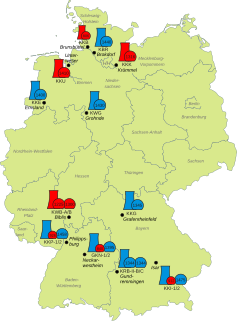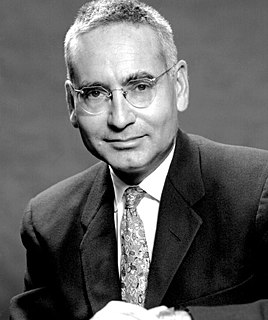 W
WThe International Radiation Protection Association (IRPA) is an independent non-profit association of national and regional radiation protection societies, and its mission is to advance radiation protection throughout the world. It is the international professional association for radiation protection.
 W
WThe Nukegate scandal is a political and legal scandal that arose from the abandonment of the Virgil C. Summer nuclear expansion project in South Carolina by South Carolina Electric & Gas and the South Carolina Public Service Authority in 2017. It was the largest business failure in the history of South Carolina. Before its termination, the expansion was considered the harbinger of a national nuclear renaissance. Under joint ownership, the two utilities collectively invested $9 billion into the construction of two nuclear reactors in Fairfield County, South Carolina from 2008 until 2017. The utilities were able to fund the project by shifting the risk onto their customers using a state law that allowed utilities to raise consumers' electricity rates to pay for nuclear construction.
 W
WNuclear energy policy is a national and international policy concerning some or all aspects of nuclear energy and the nuclear fuel cycle, such as uranium mining, ore concentration, conversion, enrichment for nuclear fuel, generating electricity by nuclear power, storing and reprocessing spent nuclear fuel, and disposal of radioactive waste.
 W
WThe Alvin Weinberg Foundation was a registered UK charity, operating under the name Weinberg Next Nuclear, that campaigned for research and development into next-generation nuclear energy. In particular, it advocated advancement of Liquid Fluoride Thorium Reactor (LFTR) and other Molten Salt Reactor (MSR) technologies.
 W
WThorium-based nuclear power generation is fueled primarily by the nuclear fission of the isotope uranium-233 produced from the fertile element thorium. According to proponents, a thorium fuel cycle offers several potential advantages over a uranium fuel cycle—including much greater abundance of thorium found on Earth, superior physical and nuclear fuel properties, and reduced nuclear waste production. However, development of thorium power has significant start-up costs. Proponents also cite the low weaponization potential as an advantage of thorium due to how difficult it is to weaponize the specific uranium-233/232 and plutonium-238 isotopes produced by thorium reactors, while critics say that development of breeder reactors in general increases proliferation concerns. As of 2020, there are no operational thorium reactors in the world.
 W
WThe TMSR-500 is a "Thorium Molten Salt Reactor" nuclear power plant being designed for the Indonesia market by ThorCon. The TMSR-500 is based on a small modular reactor (SMR) that employs molten salt technology. The reactor design is based on the Denatured molten salt reactor (DMSR) design from Oak Ridge National Laboratory and employs liquid fuel, rather than a conventional solid fuel. The liquid contains the nuclear fuel and serves as primary coolant. ThorCon plans to manufacture the complete power plants cheaply in shipyards employing modern shipbuilding construction techniques.
 W
WThe World Nuclear Industry Status Report is a yearly report on the nuclear power industry. It is produced by Mycle Schneider, a founding member of WISE-Paris, which is the French branch of the anti-nuclear group WISE, which he directed from 1983 to 2003.